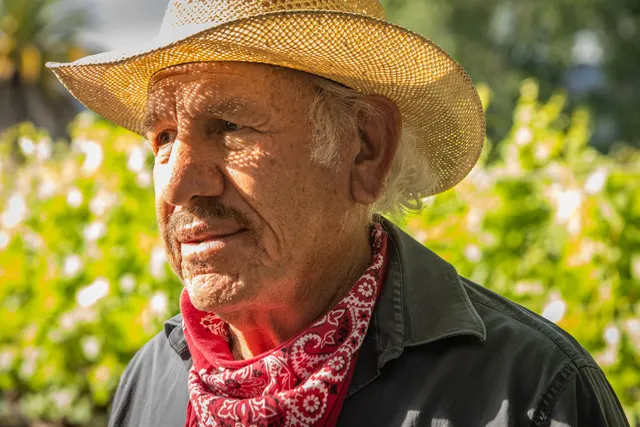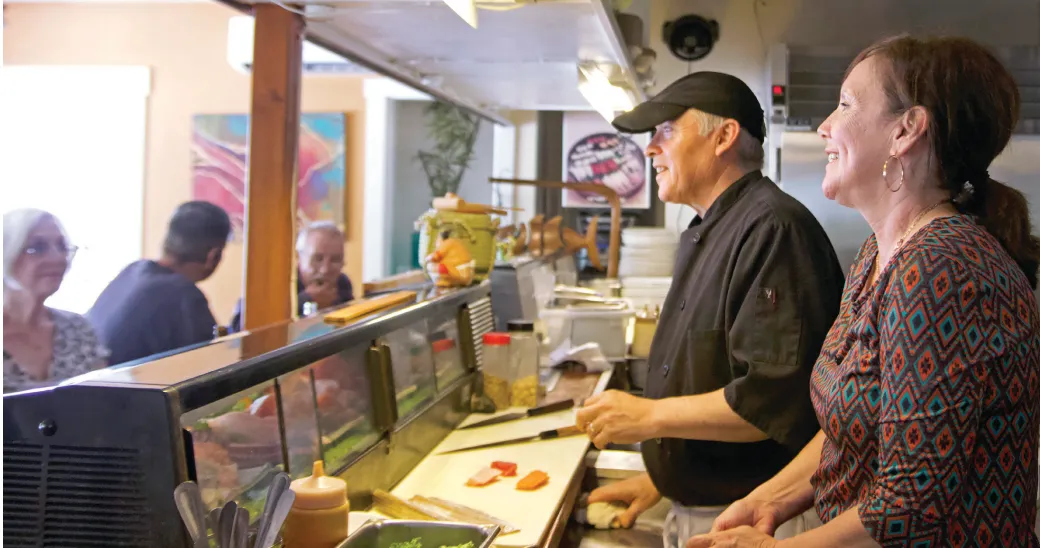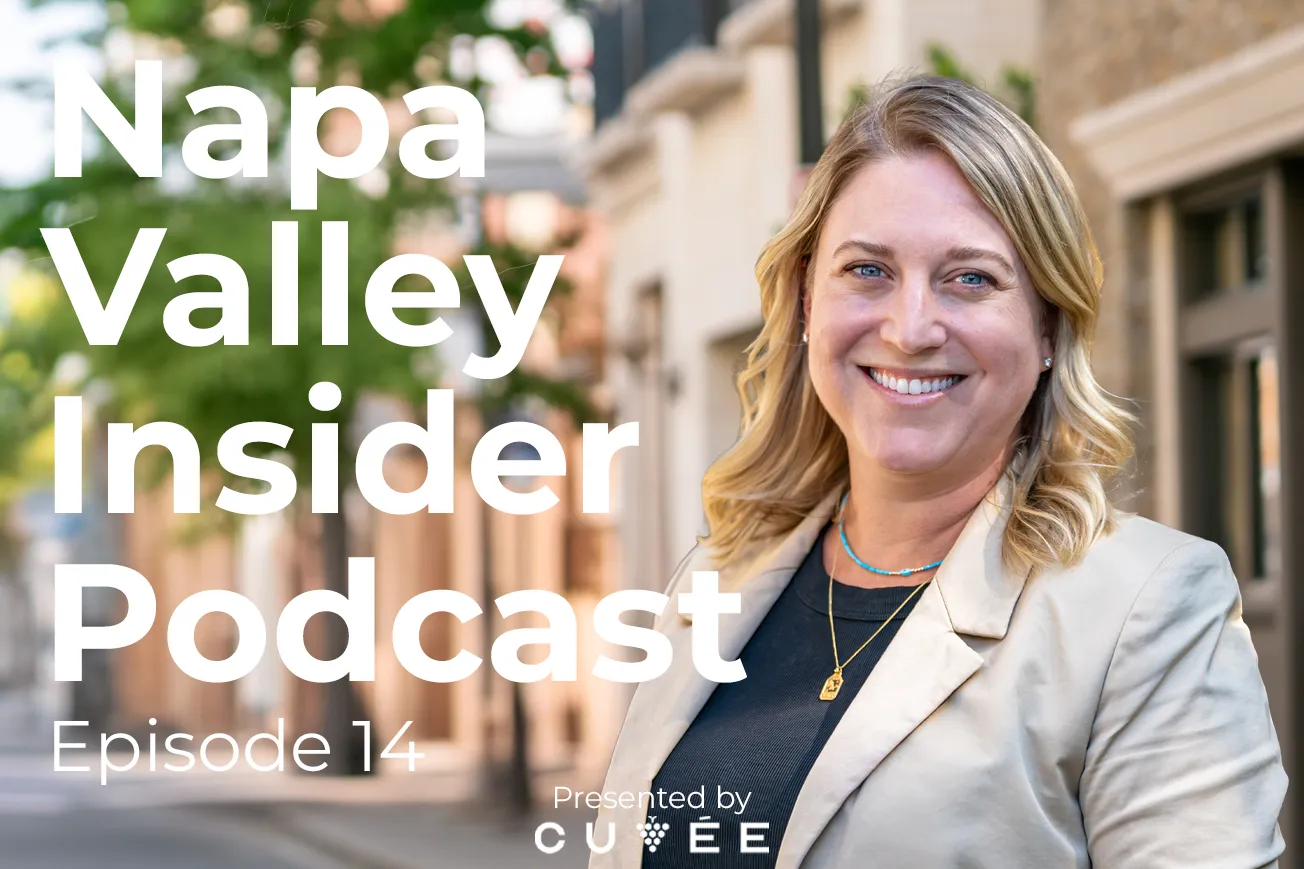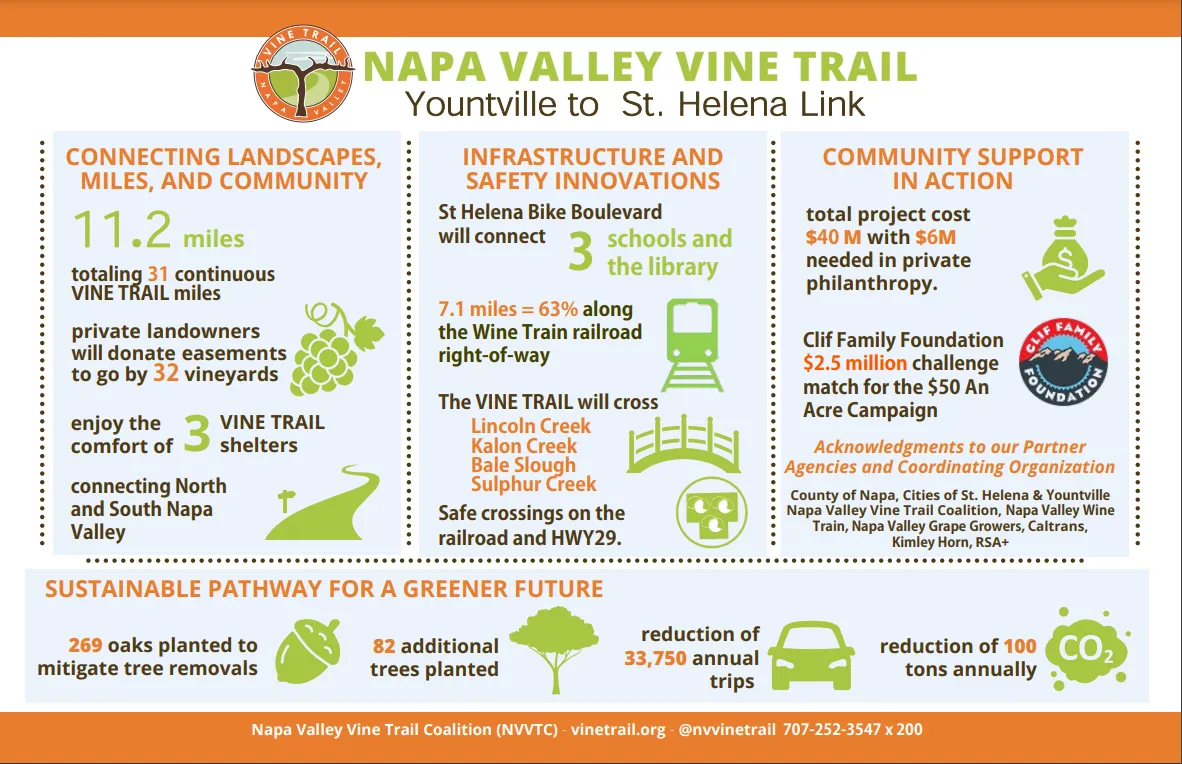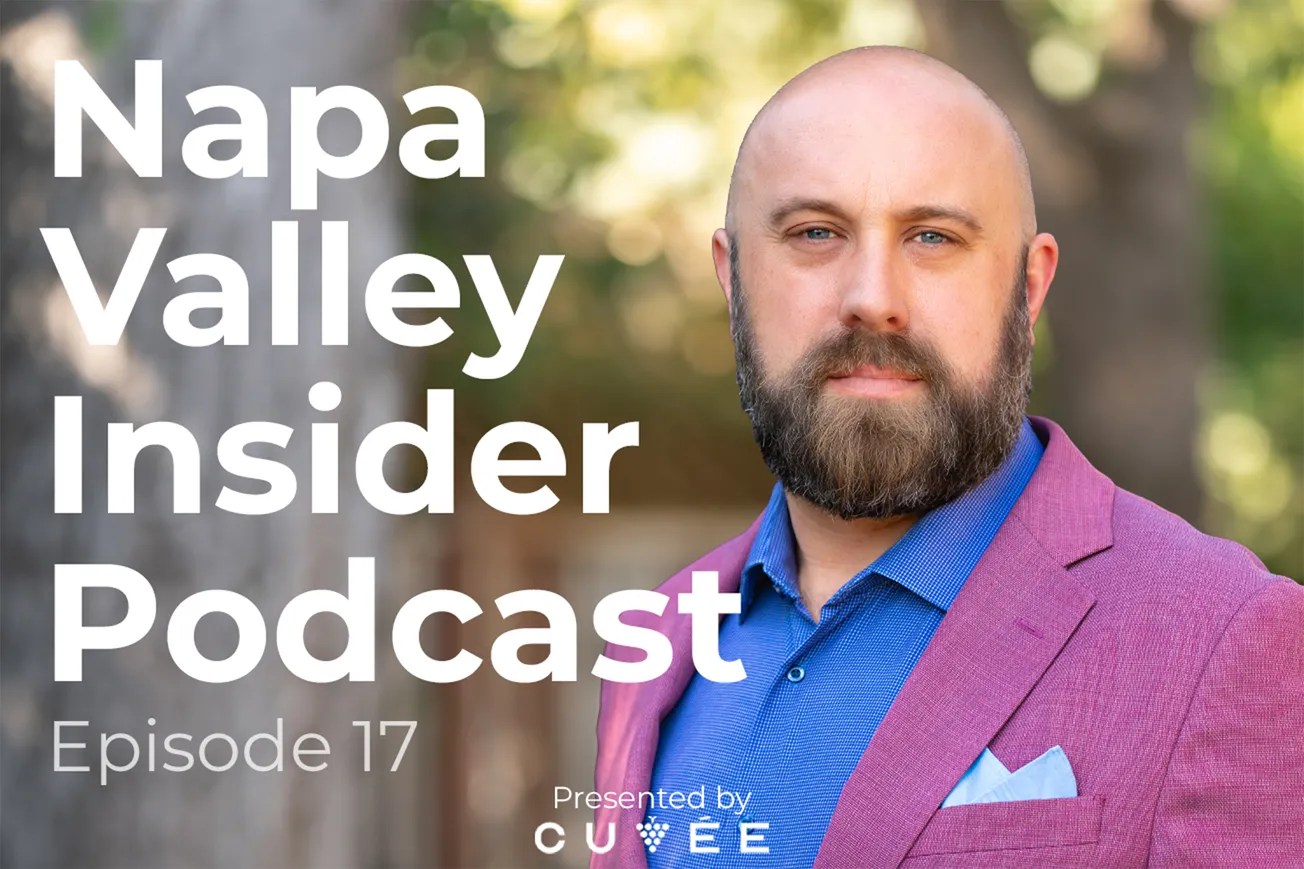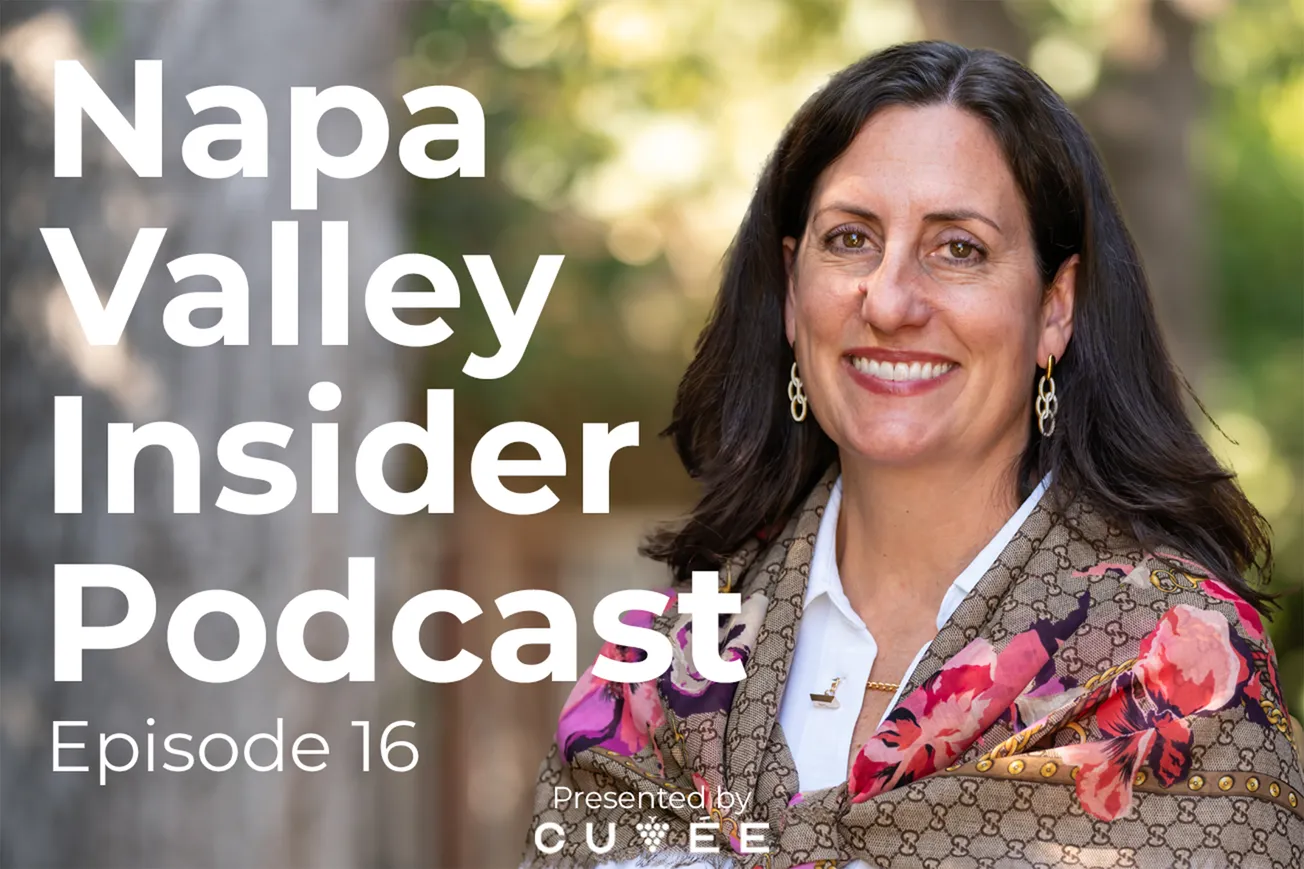CALISTOGA – Placido Garcia, 83, has recently turned the page to a new chapter in his life: Serenity.
The chants of “Huelga... Huelga!” he once shouted on the picket lines for the Farm Workers Union have now been substituted with the melodic strums of his guitar at the Calistoga church where he performs every Sunday. The absence of healthcare for farmworkers and the uninsured have been replaced with OLE Health, a clinic Garcia pioneered alongside Hope Lugo, Aurelio Hurtado, Luis Flores and Tala DeWynter. Knocks on doors, canvassing to become elected as the first Mexican on the Calistoga city council have been replaced with more door knocks, but a different kind.
Now, others knock on Placido’s front door, seeking his help in telling the story
of the city and Napa Valley, a telescopic view into California history, which he
played a pivotal role in shaping.
“Comparing 1961 Calistoga to now, we have made tremendous progress,” Garcia said, speaking in Spanish. “We are a community that is still in development; our roots are still not fully cemented yet, and hopefully, our progress never stops.”
Only a handful of Mexican families lived in Calistoga when Placido Garcia arrived in 1961 to work as a farmworker. In the city, there were no Spanish-speaking
healthcare providers, no services tailored to immigrants, no labor contracts ensuring the rights of farmworkers and no school immersion programs for newly arrived students. Their livelihood did not extend beyond survival and work in the vineyards pruning grapevines, Garcia said.
“Progress in the city and our country will never finish, but we are seeing so many changes,” he said. “We have Irais Lopez-Ortega as vice mayor in Calistoga, for example, and in American Canyon we have Belia Ramos. I expect to see more Latino representation in government and boards.”
Garcia added that he had always strived to be an example of “Sí se puede” (yes we can).
“If I can do it [lead change] with limited English and six years of education from Mexico, others can. I wanted to take that first step so others who are more prepared than me take that leap of faith to initiate change through public service.”
Garcia’s community activism has been celebrated with arguably the same enthusiasm as Independence Day, but that’s because he was born on July 4 – in Chihuahua, Mexico. The oldest of four, Garcia started working at a young age to help provide for his family. During his teenage years, he met the love of his life, Maria, who he married at age 20. As a new husband, father to a baby boy and head of the household, Garcia knew better opportunities waited for him and his family in the United States; limited opportunities severed the stability of his family
in Mexico.
He took a leap of faith and applied for a green card to work in the United States. His family stayed in Mexico for 14 years until he felt secure enough to bring them in 1974. Landing a job at Chateau Montelena Winery changed his life, he reflected.

Garcia worked up the ranks from cellar worker to vineyard manager. His employer was always supportive of his activism, he said, noting that when he had community meetings, he was empowered to attend and be involved.
Before arriving in Calistoga, he worked in Sacramento, Fairfield and other rural parts of the state, picking peaches, melons and pears. He said destiny brought him to Calistoga, where he worked with Cesar E. Chavez during the farmworker’s union movement, pioneered a health clinic and served on the Calistoga city council.
“I used to hear about the farmworker union happening in Modesto, Delano and Sacramento, but I did not really understand what was happening,” recalled Garcia.
Chavez, a labor leader and civil rights activist, along with Dolores Huerta, founded the National Farm Workers Association Movement in the mid-1960s and gathered workers to join the strikes and unionize. One night Chavez knocked on Garcia’s door – on farmworker housing property where he and five of his colleagues slept.
“We let him in and we talked for about three hours about the movement and it
was what we needed.” Local farmers joined the union, picketed and with the help of lawyers they were able to negotiate better working conditions and wages. But, that was just the start.
Garcia said that things improved when they got a deal, but instead of struggling to survive, they were struggling to live.
“I got involved in the community because I wanted to help people like myself,” said Garcia. “I saw colleagues getting sick, like any other human, but because they couldn’t be seen here, they would wait until the harvest was over, head back to Mexico and then see a doctor,” Garcia recalled. “Sometimes it would be too late. Some even died. Had a doctor seen them here in our valley, they would have most likely still been alive.”
Garcia, who had been involved with Organización Latino Americana de Liberación Económica (O.L.L.E) since 1967, took the initiative to approach the organization with the idea of having a clinic that serviced farmworkers and the uninsured. At the time, O.L.L.E served as a central hub providing farmworkers with services like translation and transportation support.

Through Garcia's efforts, the organization evolved into Ole Health, an idea pioneered by Garcia and brought to life with the support of Tala DeWynter, OLE’s first director. At first, it seemed like a radical idea to stakeholders, but despite pushback from a number of county supervisors, the nonprofit healthcare system expanded, he said.
“It wasn’t easy, but we did it.”
For a few years, the new OLE clinic was the size of a small room, according to Garcia, and was serviced by a few doctors who volunteered their time in the evening after closing their own practices.
Nearly every aspect related to farmworker, immigrant and community advancement in Calistoga was spearheaded or touched by Señor Placido. His resume of activism spans beyond what feels like a lifetime – all while still raising a family with five children. Garcia, in collaboration with Susan Fiddman also advocated for the Mexican Matricular Consular de Alta Seguridad (a form of identification) that became accepted by local authorities. Because of this, immigrants had the opportunity to open bank accounts, for example.
He also served on various boards relating to affordable housing, healthcare access and rallied for the implementation of cultural celebrations like 5 in the Mayo in the city of Calistoga.
In 2006, he was elected to be on the Calistoga citycouncil where he served until 2010. The list continues. His many awards and accolades include The Lifetime Achievement Award, endorsed by the State Senate and Assembly.
Despite his numerous accolades at the local and state levels, he emphasized, “Alone, one cannot accomplish grandiose change. It’s not about me; it’s about all of us. Our upward mobility would not happen without the community, activists, and allies,” he humbly added.
As Garcia reflected on his journey to city council, he said winning the majority of the vote was not what made him feel like “he did it.” It was the fact that he was opening the door for future generations of Latinos to run for office across the country. “It was like ‘Yes, I did it, but the principal win was taking that first step so Mexicans and farmworkers would come after me at the Calistoga level, Napa and America level.”

His goal while on the city council was the blending of all communities.
“Most of the time, divisions exist because of the mere lack of communication,” he said. But sometimes things were more convoluted than that, he added. “Some people, specifically in the newspapers, said, ‘How can I be a part of the city council if I have an accent?’” While he faced discrimination, he said it never humiliated him; it only gave him more strength.
“I want to thank both communities for voting for me, especially the Anglo community; a lot of Hispanics during that time could not vote,” Garica said. “I did not want to hold on to power, so it was important for me to step away and allow someone else to lead Calistoga.”

While looking back on his time on the council, Garcia shared that he is deeply thankful for former councilmember Karen Slusser, who was a friend to him and many in the community. Slusser died earlier this month of congestive heart failure. “She, like many others, gave me the support I needed,” added Garcia.
After nearly an entire lifetime of activism, Garcia now spends his time doing the things that calm his soul: Playing his guitar, singing and spending more time with his family. He still sings on the church chorus every Sunday at 9 a.m.
“I thank God for my family, my friendships and the people who have extended their hand. I also want to thank this country for accepting me and my family to grow as humans,” he added.

“I never say I did it; it’s a ‘we’ concept. We, Latinos, have all done something for this to be possible…No one can stop us. We are a very valuable force to this country. We have given it our all to build what our nation is today.”
And, according to Garcia, “The one that lives to help others lives the most beautiful life.”



